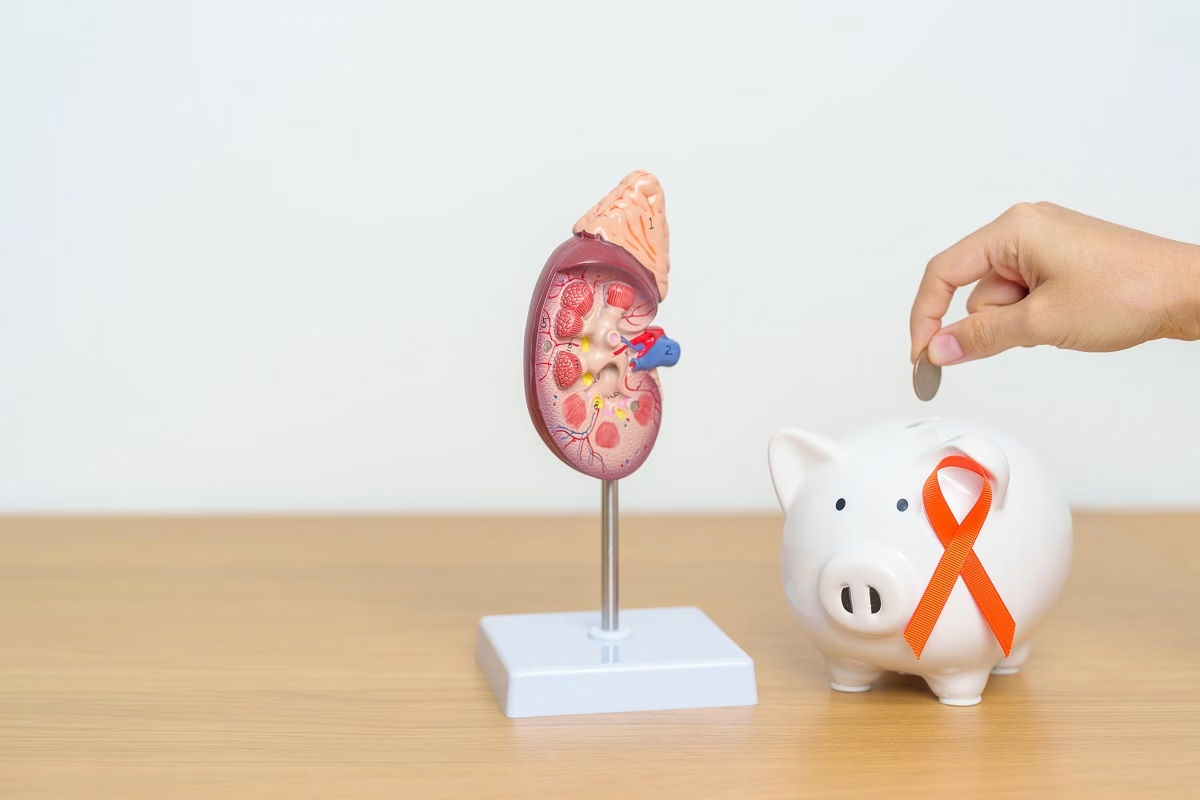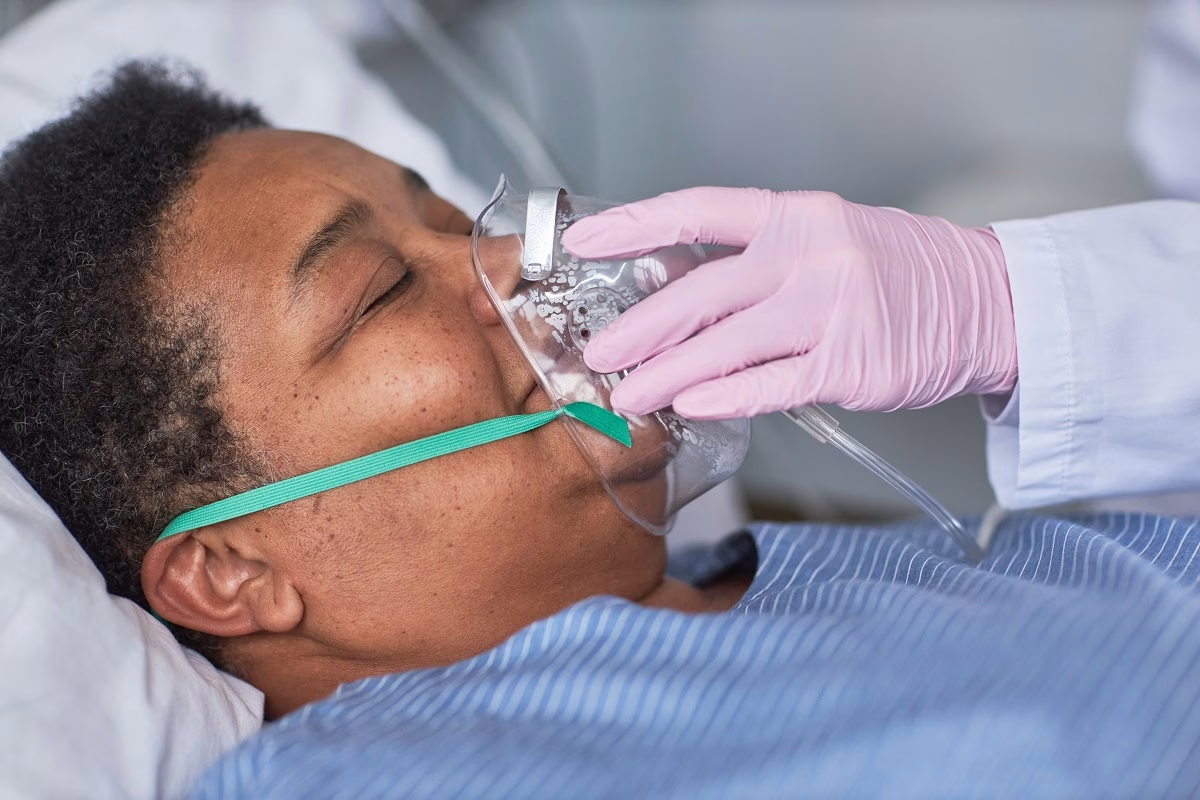One of the most common types of kidney cancer is called renal cell carcinoma (RCC). Usually, this type of cancer causes pain on both sides of the body, bloody urine, and a mass (tumor) in the abdominal area. However, most people with RCC do not experience any symptoms until doctors identify the tumor during an imaging test. Commonly, doctors prescribe different treatments because it depends on the severity and type of cancer, your response to treatment, overall health, age, and preferences.
Renal cell carcinoma often develops in the small tubes inside the kidneys (tubules). Through these tubules travel substances the body needs, including water and nutrients, to the bloodstream. Moreover, about 85% of all kidney cancers are RCC. In most cases, this type of cancer begins as a single clump of cancer cells (a tumor) that appears only in one kidney.
Types of Renal Cell Carcinoma
In general, there are more than 50 types of RCC, and most of them are rare. Healthcare professionals divide this type of cancer into multiple types based on how the cancerous cells look under a microscope and their DNA (genetic material). Check below the most common types of RCC:
- Clear cell renal cell carcinoma (ccRCC) – This is the most common type of RCC.
- Papillary renal cell carcinoma – This type of RCC accounts for 10% to 15% and it gets its name from the finger-like projections (papillae) visible on most tumors.
- Chromophobe renal cell carcinoma – It accounts for 5% to 10% and the cells are light-colored under a microscope.
- Unclassified RCC – About 6% of all RCC do not fit in any category.
Your healthcare professional may also refer to RCC as localized or advanced (metastatic). While localized RCC remains only in the kidneys, metastatic cancer spreads throughout the body.
In general, this type of cancer affects about 80,000 people in the U.S. and 400,000 in the whole world each year. While anyone may develop this type of cancer, it mostly affects males between 60 to 80 years old.
Symptoms
This condition usually does not cause symptoms in the early stages. They often occur when the tumor becomes large enough to put pressure on nearby tissue or organs. Check below some symptoms:
- Hematuria (bloody urine)
- Pain between the hips and ribs
- A lump in the abdomen (belly) or low back
- Fever
- Night sweats
- Unusual weight loss
In some cases, people may experience symptoms of anemia, such as fatigue and shortness of breath, or symptoms of paraneoplastic syndromes. In people with paraneoplastic syndromes, the tumors release certain substances (such as hormones) that cause changes in the body.
However, if you experience any of the previous symptoms, immediately contact your healthcare professional.
Causes
This type of cancer occurs like others when cells develop DNA changes and begin to grow and multiply abnormally. Nowadays, healthcare providers do not fully understand what exactly triggers these DNA mutations (changes).
Risk Factors
While it is not possible to determine what exactly causes RCC, doctors have identified some factors that could increase your risk of developing it. Check below some examples:
- Smoking
- Obesity (excessive body weight)
- Hypertension (high blood pressure)
- Chronic kidney disease (including long-term dialysis treatment)
- Chronic hepatitis C infection
- Long-term use of some pain medications (such as Acetaminophen and NSAIDs)
- Radiation therapy to the abdomen (which is used to treat another type of cancer)
- Exposure to carcinogens (cancer-causing substances), such as Cadmium and Asbestos
- Sickle cell disease
- A family history of kidney cancer
- Genetic mutations
- Tuberous sclerosis complex
- Von Hippel-Lindau disease (VHL)
People with a family history of kidney cancer should have regular checkups to make sure they do not develop it.
How to Prevent Renal Cell Carcinoma?
Unfortunately, there is no way to prevent this condition, but you can take some steps to reduce the risk. These include quitting smoking (if you have problems with smoking cessation, discuss it with your doctor), adopting a balanced diet (avoiding foods high in fat, carbohydrates, and sugar), and others. Consult with your physician for more details.
Diagnosis
In most cases, 25% of people with RCC get their diagnosis in advanced stages of cancer. It occurs because it does not cause symptoms in the early stages. Sometimes, they may also find the tumor when performing imaging tests for other reasons. Check below some tests often performed by doctors when RCC is suspected:
- Ultrasound – This test uses high-frequency sound waves to produce images displayed on a monitor. It helps show whether the tumors consist of fluid (such as cysts) or solid material (more common in cancerous tumors).
- CT (computerized tomography) scans – This is another imaging test used to produce cross-sectional images of different structures and organs in the body. Usually, doctors also use a contrast (dye) injected into a vein to get more detailed images.
- MRI (magnetic resonance imaging) – This test uses a large magnet and radio waves to make detailed images of the inside of the body. It is usually recommended by doctors when previous imaging tests show results that are not conclusive.
Commonly, doctors use to perform a biopsy as part of a cancer diagnosis. To perform this test, doctors often take a small sample of the tumor for testing. In such cases, biopsies are too risky because they may cause kidney damage. That’s why they usually examine the cells after the removal of the entire tumor.
In addition, once you are diagnosed with RCC, doctors may also perform additional imaging tests to determine the extent (stage) of the cancer. It helps make the best treatment plan for you.
Treatment
Healthcare professionals usually prescribe different treatments for people with RCC because it depends on several factors. For example, the type and severity of the cancer, existing health problems, age, and preferences. Moreover, the treatments are often different for localized and metastatic RCC.
Localized Renal Cell Carcinoma Treatment
These include:
- Radical nephrectomy – This treatment is used to remove the affected kidney and some healthy tissue around it (including the adrenal glands, lymph nodes, and others).
- Partial nephrectomy – During this procedure, surgeons will remove only the affected part of the kidney. It is possible when the tumor is small. Moreover, it also allows to keep some kidney function.
When surgery is not an option, doctors may recommend other treatments. For example:
- Cryotherapy – A procedure that uses cold to destroy cancerous cells.
- Radiofrequency ablation – In such cases, cancerous cells are killed using heat.
Metastatic Renal Cell Carcinoma Treatment
When the cancer metastasizes, it breaks and spreads throughout the body. While some people still require surgery to remove the tumor, they also need additional treatments that will destroy cancerous cells throughout the body. The most common options prescribed by doctors include immunotherapy and targeted therapy. For example:
Immunotherapy
This treatment involves specific medications that boost the immune system to find and destroy cancerous cells. Doctors often prescribe the following medicines. For example:
- Avelumab
- Ipilimumab
- Nivolumab
- Pembrolizumab
Targeted Therapy
This therapy helps block certain proteins in the cancerous cells, causing them to die. Check below some examples:
- Axitinib
- Bevacizumab
- Cabozantinib
- Everolimus
- Levantinib
- Pazopanib
- Temsirolimus
- Tivozanib
- Sinitinib
- Sorafenib
Moreover, doctors may also recommend radiation therapy along with one of the previous treatments to improve the effectiveness.
Frequently Asked Questions
Is renal cell carcinoma curable?
Yes, but if the tumor is localized (has not spread to other structures and organs in the body). If the cancer metastasizes, there is no cure for it. In such cases, the treatment goal is to reduce the symptoms and improve your quality of life.
Where does renal cell carcinoma spread first?
In most cases, when RCC metastasizes, it spreads to the lymph nodes, lungs, bone, liver, and brain. However, it may also spread to the ovaries or testicles.
What is the survival rate for renal cell carcinoma?
In general, the 5-year survival rate for localized RCC is about 93%. However, when it spreads to other parts of the body, the same survival rate decreases to 14%. Ask your healthcare provider if you have additional questions.




